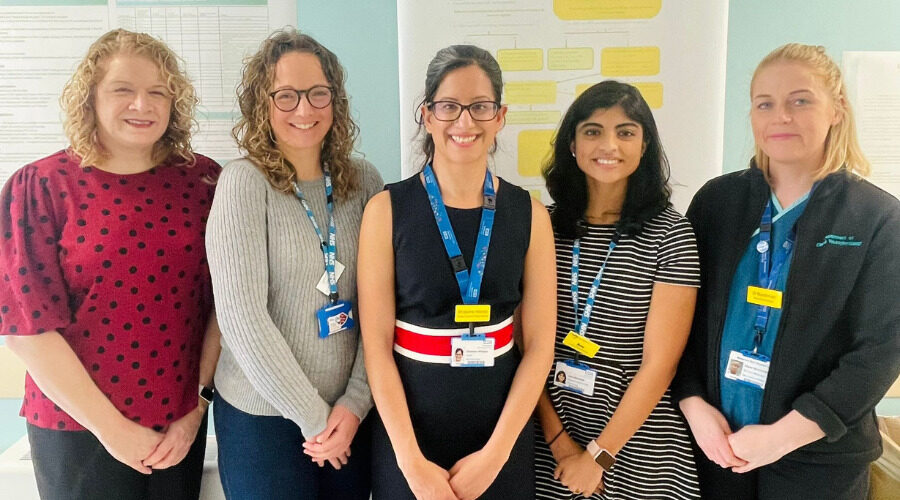
Spotlight
Putting Somerset on the healthcare science map
Working together as the scientific backbone of the NHS, is a profession that sets out to accelerate innovation and improve patient outcomes – our healthcare scientists!
There are over 50,000 healthcare scientists working across the NHS and public health services, including our own team here at Somerset FT. There’s currently one fully-qualified consultant healthcare scientist and five trainee consultant healthcare scientists:
- Sadie Thomas – consultant clinical biochemist and clinical director for pathology
- Diane Boothman – third year neurophysiology higher specialist scientist trainee (HSST) and service lead for neurophysiology
- Anu Abraham – second year HSST in biochemistry and biochemist
- Shabana Allsop – second year HSST in microbiology and microbiologist
- Natalie Bales – second year HSST in imaging physics and clinical scientist
- Emily King – second year HSST in cardiac science and clinical scientist.
Our healthcare scientist colleagues make a real difference to patients every day, completing 80% of diagnostic imaging, and developing some of the most amazing clinical and technological advancements. They are found in many areas of the trust, typically, medical physics, audiology, cardiology, and neurophysiology.
Trainee consultant healthcare scientist Emily explains more about her role at the trust, and across the NHS more widely: “No day is the same as a healthcare scientist, and that’s the best thing about it – we’re always learning, growing, and evolving our practice. We have a passion for quality improvement and research, and we’re all working hard to make Somerset one of the leading centres in the country for healthcare science!
“I’m currently in my second year as a cardiac science trainee, on the HSST programme. It’s a 5-year, professional doctorate programme, designed to train consultant scientists. Part of my current role is leading on training and education in cardiac physiology, and as part of that, I am the training officer for our post-graduate MSc and PGCert trainees. I work with the National School of Healthcare Science (NSHCS) and NHS England to support all the MSc cardiac science trainees across the south west.
“The NSHCS has created lots of different routes into the profession, ranging from apprentices up to Doctorate level, so there’s plenty of opportunity depending on your background and circumstances. It would be great to see more highly-motivated trainee healthcare scientists come into the trust – the roles come with full funding from NHS England and a training fund allocation, and they could make a huge difference to departments across the trust.
“On top of all of this, I work alongside clinical scientists as part of our scientist-led heart valve clinic, scientist-led exercise stress echo, and scientist-led bubble/contrast echo clinic. This advanced work frees up our medical consultant colleagues, who would otherwise be performing and reporting these diagnostic tests.”
Over the past few years, the trust has been developing an independent science faculty, and as part of that work, a unique role for a lead healthcare scientist has been created.
The new role will lead the scientific community within Somerset FT, and will help to elevate the trust’s profile as a leader in healthcare science both regionally and nationally.
The closing date for applications is Sunday (4 February) and the group are very much hoping that someone looking to move into a senior leadership role within the field will take up this rare opportunity.
Emily added: “I would encourage any senior healthcare scientists with experience in leadership to consider applying for the position – we’ve got an exciting future here for healthcare science in Somerset and it’s a great opportunity. If anyone across the trust knows of someone suited for the role, please do share the information with them and encourage them to apply.”

